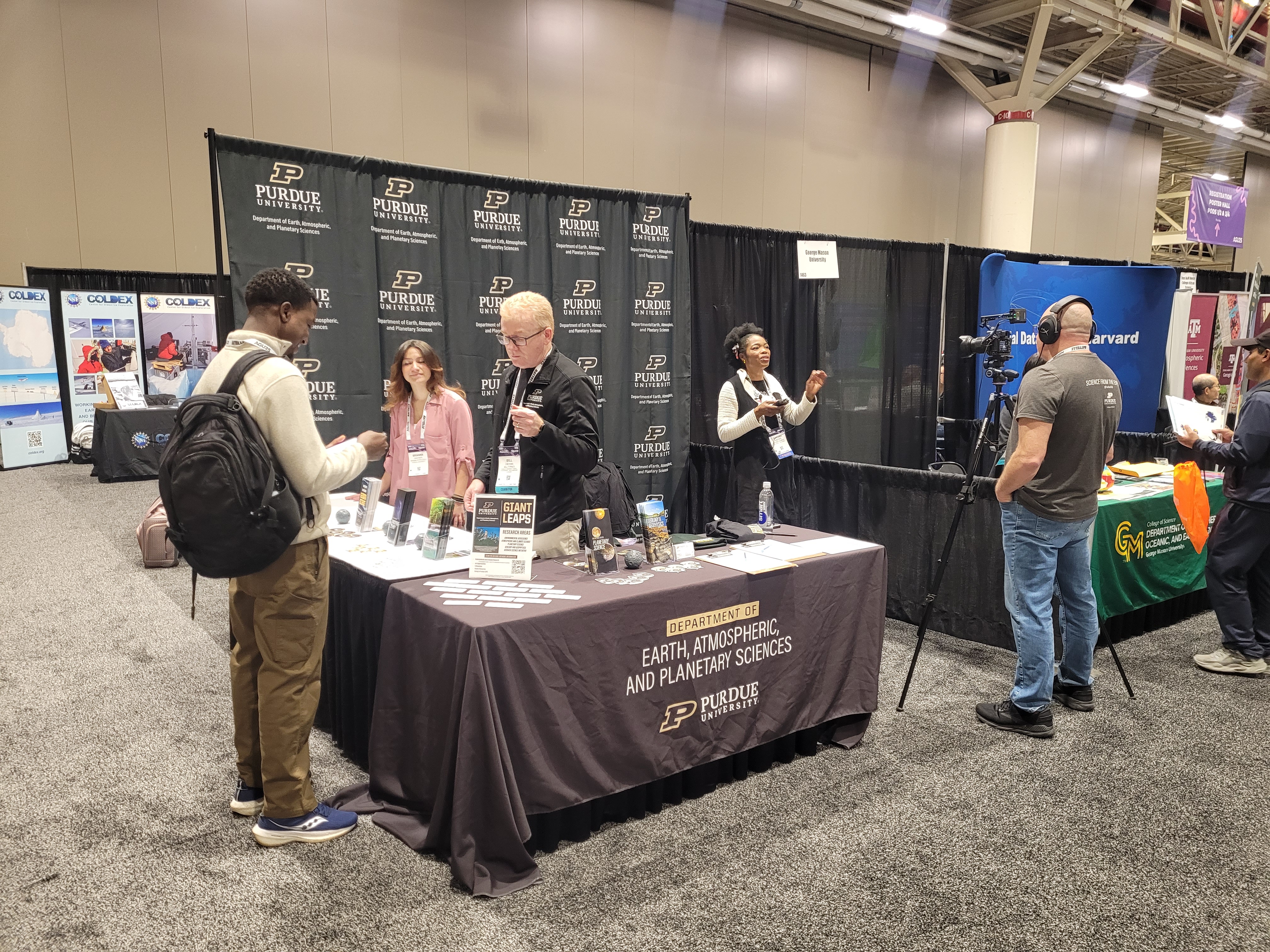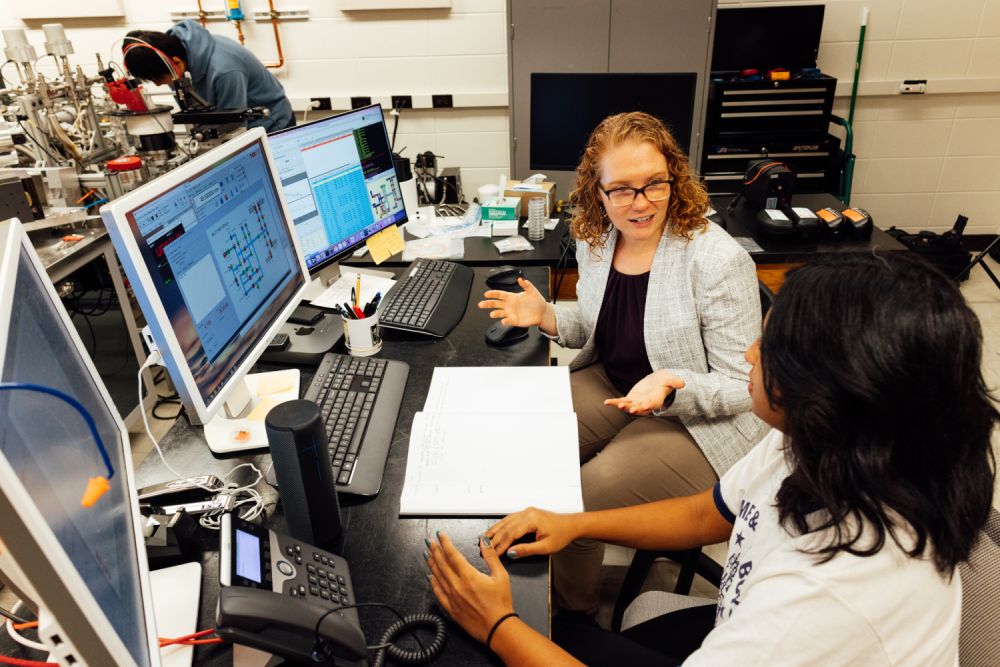
01-20-2026
A Recap of Purdue EAPS at AGU 2025
The American Geophysical Union's (AGU) annual Fall Meeting is the world's largest conference for Earth and space sciences, which was held on December 15-19, 2025, in New Orleans, Louisiana, under the theme "Where Science Connects Us" to foster global collaboration and share groundbreaking research.
Purdue EAPS had several students, faculty, and alumni in attendance, making a big presence in the Big Easy!

